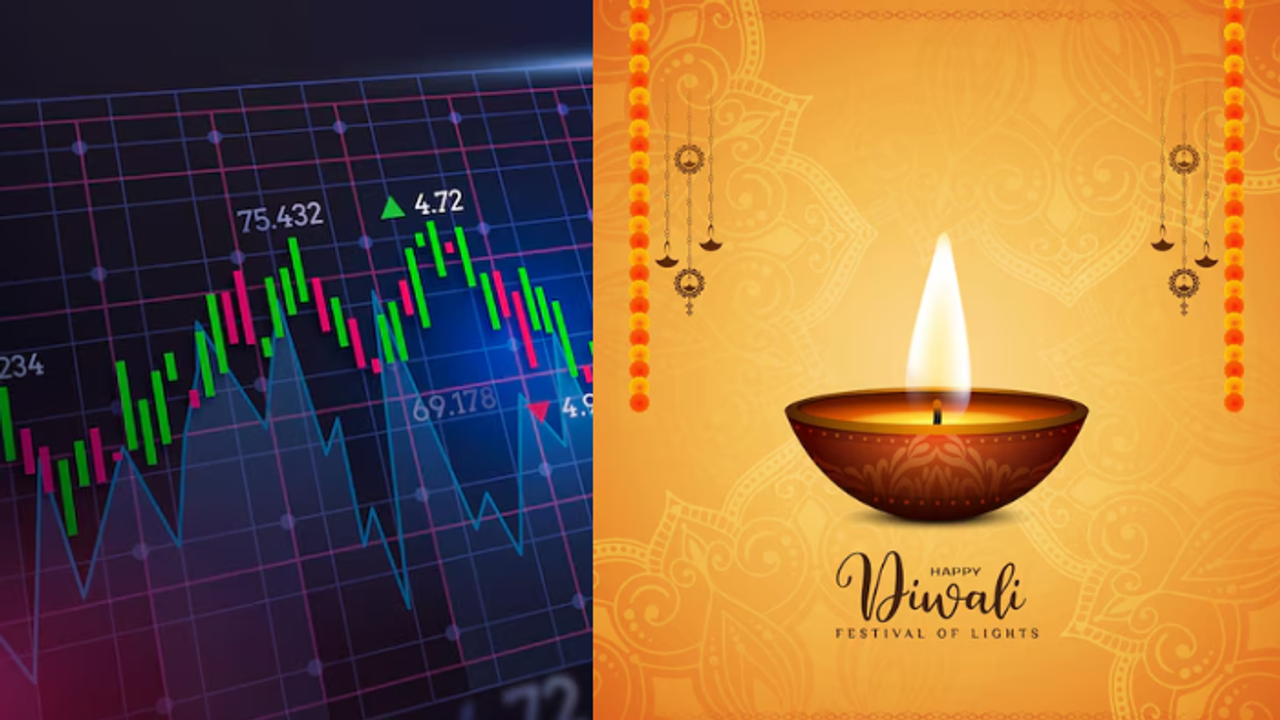Samvat 2080 marked an unprecedented year of wealth creation, adding approximately Rs 128 lakh crore (about $1.5 trillion) to investor wealth since last Diwali, propelling the market to a record total of Rs 453 lakh crore.
The Indian stock market concluded Samvat year 2080 on Thursday with a slight downturn, with the Sensex falling by 553 points to close at 79,389 points, marking a three-month low. On the NSE, Nifty closed at 24,205 points, down by 136 points.

The final trading month saw increased selling pressure from foreign investors, resulting in a roughly 6% decline in both indices.
Nevertheless, Samvat 2080 marked an unprecedented year of wealth creation, adding approximately Rs 128 lakh crore (about $1.5 trillion) to investor wealth since last Diwali, propelling the market to a record total of Rs 453 lakh crore.
Market experts attribute this strong performance to India’s robust economic policies, a stable central government, successful inflation management, and steady inflows from domestic investors. Domestic institutional investors contributed significantly, with an inflow of Rs 4.7 lakh crore throughout the year.
Shripal Shah, MD & CEO of Kotak Securities, noted that despite global geopolitical concerns, domestic factors like elections, favorable monsoons, strong macroeconomic indicators, and SEBI's ongoing efforts to safeguard investors have fostered a resilient and optimistic market environment.
"Notably, we've seen a surge of eager new investors keen to be part of India's growth story," Shah was quoted as saying in a Times of India report.
In a milestone for the financial sector, the National Stock Exchange (NSE) reported its investor base had surpassed 20 crore. Mutual funds also experienced notable growth, with the industry's total assets reaching Rs 68 lakh crore and monthly inflows through SIPs nearing Rs 25,000 crore, both all-time highs.
Gold, traditionally a favoured investment, trailed only silver in annual returns, with gains of 33% and 37% respectively. However, Bitcoin emerged as the top-performing asset, yielding a remarkable 72% return over the year. In contrast, the rupee and crude oil showed minimal returns.
The year was not without challenges, as opposition parties called for the resignation of the SEBI chief amid conflict-of-interest allegations, although the regulator denied the claims. Moving forward, analysts caution that Samvat 2081 could be more challenging for Indian equities, as domestic and global factors evolve.
